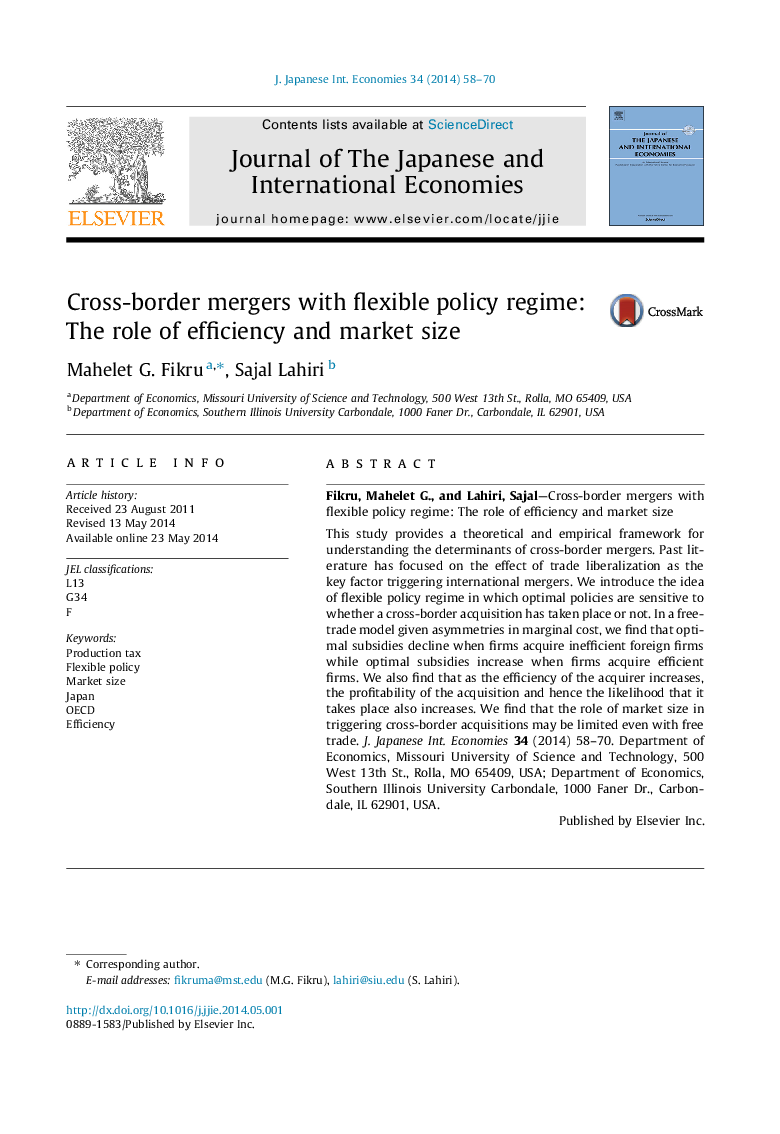| Article ID | Journal | Published Year | Pages | File Type |
|---|---|---|---|---|
| 964482 | Journal of the Japanese and International Economies | 2014 | 13 Pages |
•Policies such as production tax are flexible and adjust when the market structure changes due to a cross-border merger.•The profitability of cross-border mergers increases as the efficiency of the acquirer increases.•The role of larger market size in triggering cross-border mergers may be limited even with free trade.
This study provides a theoretical and empirical framework for understanding the determinants of cross-border mergers. Past literature has focused on the effect of trade liberalization as the key factor triggering international mergers. We introduce the idea of flexible policy regime in which optimal policies are sensitive to whether a cross-border acquisition has taken place or not. In a free-trade model given asymmetries in marginal cost, we find that optimal subsidies decline when firms acquire inefficient foreign firms while optimal subsidies increase when firms acquire efficient firms. We also find that as the efficiency of the acquirer increases, the profitability of the acquisition and hence the likelihood that it takes place also increases. We find that the role of market size in triggering cross-border acquisitions may be limited even with free trade.
